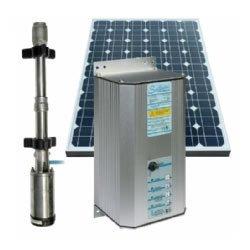
Solar hot water
19 May 2018
Thermodynamic water heater tank
19 May 2018Swimming pool water heater / solar spa
Hot water at low cost.
Unlike gas or electricity whose heating costs are added year after year,
solar energy is free for life.
Advantages :
- Reduces your energy costs (more costs after initial purchase and installation)
- A bathing summer of about five months
- Enjoy hot water at all times
- Helps reduce greenhouse gases (carbon dioxide (CO2) released into the atmosphere
- No toxic residues
- No noise
- Environmental sanitation
- Does not require little maintenance
- Durable equipment (10-year warranty, life span of up to 20 years)
Operation of the solar water heater for swimming pools.
Usually, the system consists of black plastic panels (sensors) that capture sunlight to heat the water in your pool. By means of the pump of the filtration system,
water flows to these panels where it circulates and heats in the sun, then returns to the pool.
In general, the system works with any type of pump, whether the pump is near or far from the panels. A manual or automatic valve controls the flow of water to the solar collectors.
We recommend the option of an automatic valve, as this guarantees optimum efficiency depending on the weather conditions.
Installation on a south-east roof is recommended for good performance. The surface of the solar collectors must be equal to 50% of the surface of the pool if the panels are facing south.
Efficiency: Guaranteed hot water. Depending on the weather, under ideal conditions you can gain 6 ° C or 10 ° F per day.
Advantage: ecological, zero pollutant, zero decibel
Maintenance: Very little maintenance. A solar pool heater installed on an inclined roof flows by gravity when it comes time to empty pipes in the fall. It will resist the rigors of winter without problems.
Answer the following questions about your location and your roof to choose your pool water heater:
-What are the dimensions of your pool?
-What is the orientation of your roof where the solar collectors will be installed?
-What are the dimensions of the roof?
-Are there trees that shade your pool or rooftop? -Is your pool in the wind? -What is the power of your pump?
Choosing the right solar system, calculate the number of sensors needed:
Number of sensors according to the orientation of the roof (3 ‘X 6’ sensors)
Dimensions Surface South West East
(sq.) (sq.ft.) 50% 75% 80%
ROUND SWIMMING POOLS
18, 245 3 4 5
21 286 4 5 6
24, 327 5 8 9
27 368 6 11 12
SWIMMING POOLS. FORMS
Dimensions Surface South West East
(sq.) (sq.ft.) 50% 75% 80%
12 X 24 288 4 5 6
14 X 28 392 5 7 8
15 X 30 450 6 8 9
16 X 32 512 6 10 11
18 X 36 648 8 12 13
20 X 40 800 10 15 16
This table is valid for the greater Montreal area (northern regions add 2 or 3 sensors).
Here are some things to consider when making your choice. between the different technologies offered:
A propane or natural gas pool heater is less expensive to buy, but you must consider costs of about $ 1000 or more per season, to have a constant temperature of the pool water. And your house must be connected to the natural gas network.
As for the heat pump the price is similar to that of the solar pool heater, the difference is that the solar pool heater feeds on a free energy source but the heat pump has costs between $ 350 and $ 500. electricity each year. The heat pump can be noisy and must be replaced after 5 or 6 years.
More than 50% of the heat loss of a swimming pool is due to the evaporation of the water on the surface of the pool. As with any pool heater, it is recommended to use a sunscreen that will guarantee you extra hours of bathing and an extended season.





